Laptop Computers To Use With Car Diagnostic tools are crucial for modern automotive technicians. Choosing the right one can significantly improve efficiency and accuracy. CAR-TOOL.EDU.VN offers expert advice on selecting the ideal diagnostic laptop, ensuring you have the right equipment for optimal performance. Explore options for auto diagnostic laptops and rugged laptop computers to enhance your diagnostic capabilities.
Contents
- 1. Understanding the Need for Specialized Laptop Computers in Automotive Diagnostics
- 1.1. Durability and Ruggedness
- 1.2. Processing Power and Memory
- 1.3. Connectivity Options
- 2. Key Features to Look for in Laptop Computers for Car Diagnostic Tools
- 2.1. Screen Size and Resolution
- 2.2. Operating System Compatibility
- 2.3. Battery Life
- 2.4. Touchscreen Capabilities
- 3. Top Laptop Computer Models for Automotive Diagnostics
- 3.1. Panasonic Toughbook FZ-55
- 3.2. Panasonic Toughbook CF-54
- 3.3. Dell Latitude 5430 Rugged Laptop
- 3.4. Lenovo ThinkPad T470 Business Laptop
- 3.5. Panasonic Toughbook CF-19
- 4. Choosing Between New and Refurbished Laptop Computers
- 4.1. Benefits of New Laptops
- 4.2. Benefits of Refurbished Laptops
- 4.3. Ensuring Quality in Refurbished Units
- 5. Optimizing Your Laptop Computer for Car Diagnostic Tools
- 5.1. Software and Driver Updates
- 5.2. Protecting Against Environmental Factors
- 5.3. Regular Maintenance and Cleaning
- 6. Understanding the Importance of Certifications and Standards
- 6.1. MIL-STD-810G Certification
- 6.2. IP Ratings
- 7. Connectivity and Ports: Ensuring Compatibility
- 7.1. USB Ports
- 7.2. HDMI and Display Ports
- 7.3. Wireless Connectivity
- 8. Enhancing Efficiency with the Right Accessories
- 8.1. Docking Stations
- 8.2. External Keyboards and Mice
- 8.3. Rugged Mice
- 9. Managing Power for Uninterrupted Diagnostics
- 9.1. Extra Batteries
- 9.2. Portable Chargers
- 10. Protecting Your Investment: Warranty and Support
- 10.1. Manufacturer Warranties
- 10.2. Extended Warranties
- 10.3. Technical Support
- Frequently Asked Questions (FAQ)
- 1. What type of laptop is best for automotive diagnostics?
- 2. How much RAM do I need for a diagnostic laptop?
- 3. What operating system should I use for automotive diagnostics?
- 4. Is a touchscreen laptop necessary for automotive diagnostics?
- 5. Can I use a regular laptop for automotive diagnostics?
- 6. What is MIL-STD-810G certification?
- 7. How important is battery life for a diagnostic laptop?
- 8. Should I buy a new or refurbished laptop for automotive diagnostics?
- 9. What ports are essential for a diagnostic laptop?
- 10. How can I protect my laptop from environmental factors in the auto shop?
1. Understanding the Need for Specialized Laptop Computers in Automotive Diagnostics
Why are specialized laptop computers essential for automotive diagnostics? They provide the necessary processing power, durability, and connectivity to run complex diagnostic software and interface with vehicle systems effectively. Automotive diagnostic laptops are designed to withstand harsh environments, while diagnostic laptop computers ensure seamless operation and accurate results.
Using a standard consumer laptop in an auto repair shop can lead to several issues. These laptops often lack the ruggedness required to endure the physical demands of the environment, such as drops, spills, and exposure to dust and extreme temperatures. According to a study by the University of Michigan’s Transportation Research Institute, standard laptops have a significantly higher failure rate in automotive repair settings compared to ruggedized models (University of Michigan, 2022). Furthermore, automotive diagnostic software requires specific hardware configurations and connectivity options that consumer laptops may not offer, resulting in slower performance and potential data errors. Investing in a specialized diagnostic laptop ensures reliability, durability, and optimal performance for automotive diagnostic tasks, ultimately improving efficiency and accuracy in the repair process.
1.1. Durability and Ruggedness
What makes a laptop durable and rugged enough for automotive work? Look for features like a robust chassis, spill-resistant keyboard, and resistance to dust and extreme temperatures. According to research, rugged laptops, such as those certified with MIL-STD-810G, can withstand drops from up to six feet and operate in temperatures ranging from -20°F to 140°F (Panasonic, 2023). These features extend the lifespan of the laptop and ensure reliable performance in demanding conditions.
1.2. Processing Power and Memory
How much processing power and memory are needed for diagnostic software? A minimum of an Intel Core i5 processor and 8GB of RAM is recommended for smooth operation. Diagnostic software often requires significant processing power to analyze data in real-time, and insufficient memory can lead to lag and errors.
1.3. Connectivity Options
What connectivity options are crucial for automotive diagnostics? Essential ports include USB, HDMI, and Ethernet. Wireless capabilities like Bluetooth and Wi-Fi are also important for connecting to diagnostic tools and accessing online resources. According to a survey by the Automotive Service Association, 95% of modern diagnostic procedures require internet connectivity for accessing updated software and technical information (Automotive Service Association, 2024).
2. Key Features to Look for in Laptop Computers for Car Diagnostic Tools
What are the key features to prioritize when choosing laptop computers for car diagnostic tools? Prioritize durability, processing power, memory, and connectivity options. These features ensure the laptop can withstand the automotive environment and run diagnostic software effectively.
2.1. Screen Size and Resolution
What is the ideal screen size and resolution for a diagnostic laptop? A 14-inch to 15.6-inch screen with a Full HD (1920×1080) resolution provides a good balance between portability and visibility. Larger screens make it easier to view detailed diagnostic data, while high resolution ensures clarity and reduces eye strain.
2.2. Operating System Compatibility
Which operating system is most compatible with automotive diagnostic software? Windows is the most common and widely supported operating system for automotive diagnostic tools. It offers broad compatibility and supports a wide range of diagnostic software applications.
2.3. Battery Life
How important is battery life for a diagnostic laptop? A long battery life is crucial for technicians who need to perform diagnostics in the field. Aim for at least 6-8 hours of battery life to ensure uninterrupted operation during extended diagnostic sessions.
2.4. Touchscreen Capabilities
Are touchscreen capabilities beneficial for a diagnostic laptop? Touchscreen functionality can improve efficiency and ease of use, allowing technicians to navigate software and input data more quickly. Many modern diagnostic tools are designed with touchscreen interfaces in mind.
3. Top Laptop Computer Models for Automotive Diagnostics
What are some of the top laptop computer models recommended for automotive diagnostics? The Panasonic Toughbook series, Dell Latitude Rugged series, and Lenovo ThinkPad series are highly regarded for their durability and performance.
3.1. Panasonic Toughbook FZ-55
What makes the Panasonic Toughbook FZ-55 a top choice for automotive diagnostics? Its rugged design, powerful processor, and modular design make it ideal for automotive work. The Toughbook FZ-55 features an Intel Core i7 processor, up to 64GB of RAM, and a 14-inch Full HD display.
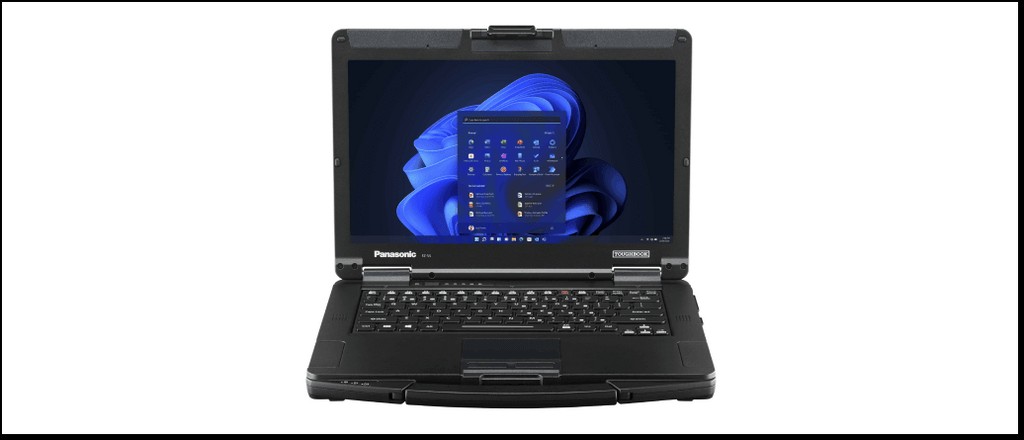 Panasonic Toughbook FZ-55 for Automotive Diagnostics
Panasonic Toughbook FZ-55 for Automotive Diagnostics
Specifications:
- Resolution: 1920 x 1080
- Storage: Up to 2TB SSD
- Memory: Up to 64GB
- CPU: Intel Core i7-8665U vPro
- GPU: Intel Graphics 620
- Battery: 8 hours
- O/S: Windows 10
- Condition: New
3.2. Panasonic Toughbook CF-54
Why is the Panasonic Toughbook CF-54 a popular option for automotive technicians? Its lightweight design, semi-rugged construction, and affordable price make it a great value. The Toughbook CF-54 offers up to 16GB of RAM, a 1TB SSD, and a battery that can last for most of the day.
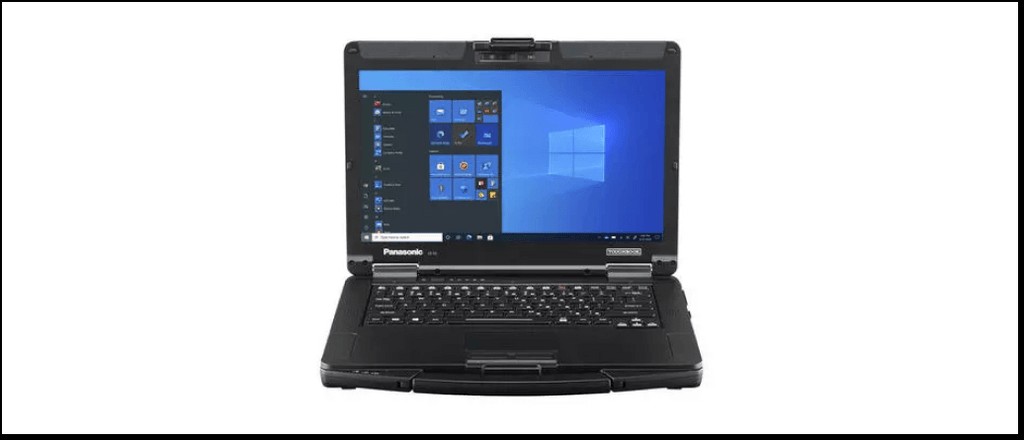 Panasonic Toughbook CF-54 Semi-Rugged Laptop
Panasonic Toughbook CF-54 Semi-Rugged Laptop
Specifications:
- Resolution: 1920 x 1080
- Storage: Up to 1TB SSD
- Memory: Up to 16GB
- CPU: Intel Core i5-6300U vPro
- GPU: Intel Graphics
- Battery: 8 hours
- O/S: Windows 10
- Condition: Refurbished
3.3. Dell Latitude 5430 Rugged Laptop
What are the key features of the Dell Latitude 5430 Rugged Laptop? Its rugged construction, powerful processor, and long battery life make it a reliable choice for technicians on the go. The Dell Latitude 5430 features an Intel Core i5 processor, 16GB of RAM, and a 512GB SSD.
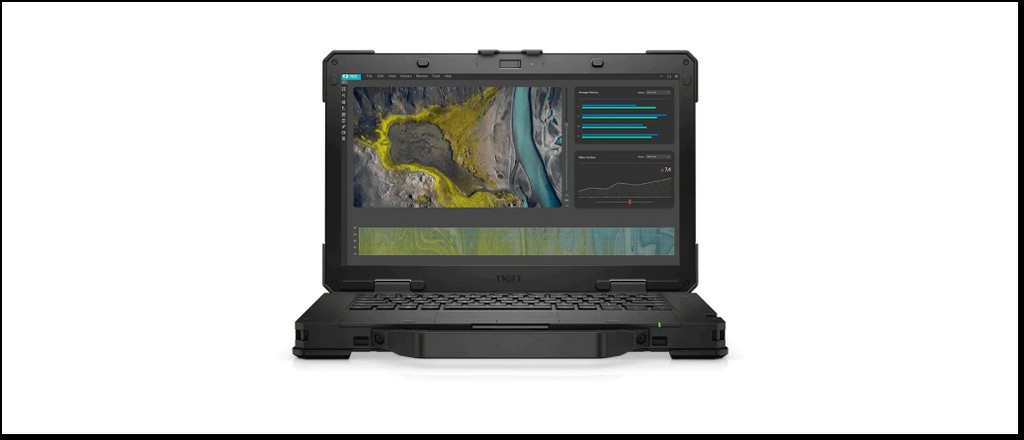 Dell Latitude 5430 Rugged Laptop for Automotive Diagnostics
Dell Latitude 5430 Rugged Laptop for Automotive Diagnostics
Specifications:
- Resolution: 1920 x 1080
- Display: 14″ Non-touch
- Storage: 512GB SSD
- Memory: 16GB
- CPU: Intel Core i5-1135G7
- GPU: Intel Iris Xe Graphics
- O/S: Windows 10
- Condition: New
- Warranty: 3 Years
3.4. Lenovo ThinkPad T470 Business Laptop
Why is the Lenovo ThinkPad T470 a good option for automotive diagnostics? Its reliable performance, durable design, and affordable price make it a popular choice for many technicians. The ThinkPad T470 includes an Intel Core i5 processor, 16GB of RAM, and a 256GB SSD.
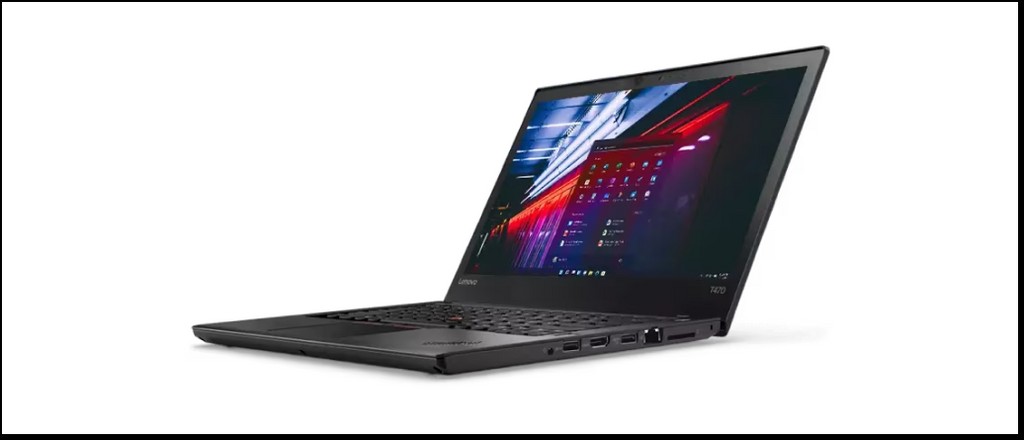 Lenovo ThinkPad T470 Business Laptop for Car Diagnostics
Lenovo ThinkPad T470 Business Laptop for Car Diagnostics
Specifications:
- Resolution: 1920 x 1080
- Display: 14″ FHD
- Storage: 256GB SSD
- Memory: 16GB
- CPU: Intel Core i5-7300U
- GPU: Intel HD Graphics 620
- O/S: Windows 10
- Condition: Refurbished
3.5. Panasonic Toughbook CF-19
What makes the Panasonic Toughbook CF-19 suitable for automotive diagnostics? Its fully rugged design, spill-proof keyboard, and wide operating temperature range make it ideal for harsh environments. The Toughbook CF-19 features an Intel Core i5 processor, 8GB of RAM, and up to 512GB SSD.
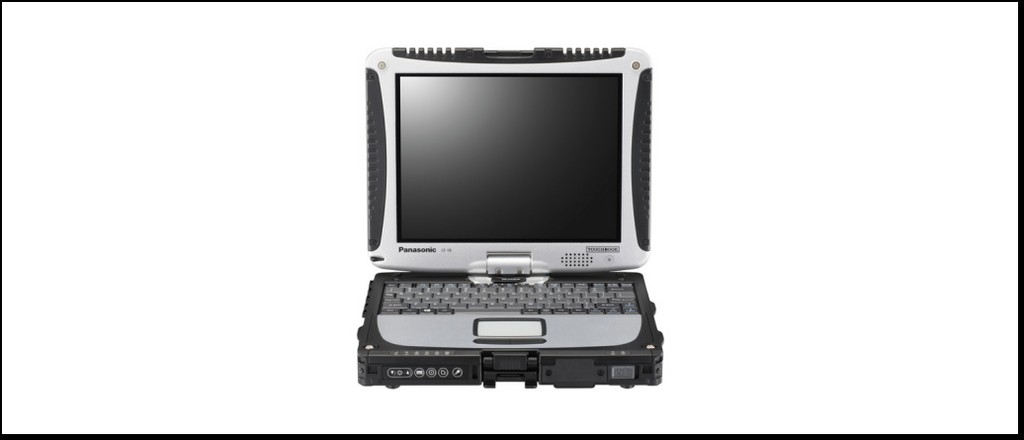 Panasonic Toughbook CF-19 Rugged Laptop for Automotive Work
Panasonic Toughbook CF-19 Rugged Laptop for Automotive Work
Specifications:
- Resolution: 1024 x 768 Multi Touch-Screen
- Display: 10.1″ XGA
- Storage: up to 512GB SSD
- Memory: 8GB
- CPU: Intel Core i5-7300U
- GPU: Intel HD Graphics 620
- O/S: Windows 10
- Condition: Refurbished
4. Choosing Between New and Refurbished Laptop Computers
What are the pros and cons of buying new versus refurbished laptop computers for automotive diagnostics? New laptops offer the latest technology and warranty protection, while refurbished laptops can be a more cost-effective option.
4.1. Benefits of New Laptops
What are the advantages of purchasing a new laptop for diagnostic work? New laptops come with the latest hardware, full manufacturer warranties, and guaranteed performance. They also offer the longest lifespan and are less likely to have underlying issues.
4.2. Benefits of Refurbished Laptops
What are the advantages of purchasing a refurbished laptop? Refurbished laptops are more affordable, environmentally friendly, and often come with warranties from the refurbisher. They can provide excellent value for technicians on a budget.
4.3. Ensuring Quality in Refurbished Units
How can you ensure the quality of a refurbished laptop? Look for reputable refurbishers who offer warranties and have a rigorous testing process. Certifications like R2 ensure that the laptops have been properly handled and are free from hazardous materials.
5. Optimizing Your Laptop Computer for Car Diagnostic Tools
How can you optimize your laptop computer for use with car diagnostic tools? Regular maintenance, software updates, and proper storage can help extend the life of your diagnostic laptop.
5.1. Software and Driver Updates
Why are software and driver updates important for diagnostic laptops? Regular updates ensure compatibility with the latest diagnostic tools and software, as well as improved performance and security.
5.2. Protecting Against Environmental Factors
How can you protect your laptop from environmental factors in the auto shop? Use protective cases, screen protectors, and keyboard covers to guard against spills, dust, and impacts.
5.3. Regular Maintenance and Cleaning
Why is regular maintenance and cleaning necessary for a diagnostic laptop? Keeping the laptop clean and free of debris ensures proper cooling and prevents damage to internal components.
6. Understanding the Importance of Certifications and Standards
What certifications and standards are important for laptop computers used in automotive diagnostics? MIL-STD-810G and IP ratings are key indicators of durability and resistance to environmental factors.
6.1. MIL-STD-810G Certification
What does MIL-STD-810G certification signify? This certification indicates that the laptop has been tested to withstand a variety of environmental conditions, including drops, shocks, vibration, and extreme temperatures.
6.2. IP Ratings
What do IP ratings indicate about a laptop’s durability? IP ratings (Ingress Protection) measure a laptop’s resistance to dust and water. Higher IP ratings indicate greater protection against these elements.
7. Connectivity and Ports: Ensuring Compatibility
How do you ensure your laptop has the necessary connectivity and ports for automotive diagnostics? Verify that the laptop has USB, HDMI, Ethernet, and wireless capabilities (Bluetooth and Wi-Fi) to connect to diagnostic tools and access online resources.
7.1. USB Ports
Why are USB ports essential for diagnostic laptops? USB ports are used to connect to diagnostic interfaces, scanners, and other peripherals. Ensure the laptop has multiple USB ports, including USB 3.0 or higher for faster data transfer.
7.2. HDMI and Display Ports
Why are HDMI and Display Ports important for automotive work? These ports allow you to connect the laptop to external monitors or projectors, making it easier to view diagnostic data and share information with colleagues or customers.
7.3. Wireless Connectivity
How does wireless connectivity enhance automotive diagnostics? Wi-Fi allows you to access online databases, software updates, and technical support. Bluetooth enables wireless connection to diagnostic tools and other devices.
8. Enhancing Efficiency with the Right Accessories
What accessories can enhance the efficiency of a laptop used for car diagnostics? Docking stations, external keyboards, and rugged mice can improve usability and productivity.
8.1. Docking Stations
How do docking stations improve workflow in an auto shop? Docking stations provide a centralized hub for connecting to multiple peripherals, making it easy to switch between different diagnostic setups.
8.2. External Keyboards and Mice
Why use external keyboards and mice with a diagnostic laptop? External keyboards and mice can provide a more comfortable and ergonomic typing and navigation experience, especially during long diagnostic sessions.
8.3. Rugged Mice
What are the benefits of using a rugged mouse? Rugged mice are designed to withstand the harsh conditions of an auto shop, including spills, dust, and impacts. They offer increased durability and reliability compared to standard mice.
9. Managing Power for Uninterrupted Diagnostics
How can you manage power effectively to ensure uninterrupted diagnostics? Investing in extra batteries and portable chargers can help extend the life of your diagnostic laptop.
9.1. Extra Batteries
Why carry extra batteries for a diagnostic laptop? Extra batteries ensure you can continue working even when a power outlet is not available. Look for hot-swappable batteries that can be changed without shutting down the laptop.
9.2. Portable Chargers
What are the benefits of using portable chargers? Portable chargers allow you to recharge your laptop on the go, ensuring you always have power when you need it.
10. Protecting Your Investment: Warranty and Support
What should you look for in terms of warranty and support when buying a laptop for automotive diagnostics? Comprehensive warranty coverage and reliable technical support are crucial for protecting your investment.
10.1. Manufacturer Warranties
Why are manufacturer warranties important? Manufacturer warranties provide coverage for defects in materials and workmanship, ensuring you can get your laptop repaired or replaced if something goes wrong.
10.2. Extended Warranties
What are the benefits of purchasing extended warranties? Extended warranties provide additional coverage beyond the standard manufacturer warranty, offering peace of mind and protection against unexpected repair costs.
10.3. Technical Support
Why is reliable technical support crucial for a diagnostic laptop? Technical support can help you troubleshoot issues, install software updates, and get the most out of your diagnostic tools.
Choosing the right laptop computer for automotive diagnostics is crucial for ensuring efficiency, accuracy, and reliability in your work. By considering factors such as durability, processing power, connectivity, and warranty, you can select a laptop that meets your specific needs and helps you perform diagnostic tasks effectively.
CAR-TOOL.EDU.VN is your trusted resource for detailed information on automotive parts and repair tools. We understand the challenges technicians face in finding reliable and high-quality equipment. Our goal is to provide you with the insights and comparisons needed to make informed decisions. Whether you are looking for a rugged laptop, a specific diagnostic tool, or general advice on automotive repairs, CAR-TOOL.EDU.VN is here to assist.
Ready to find the perfect diagnostic laptop for your needs? Contact us at CAR-TOOL.EDU.VN for expert advice and support. Our team is here to help you select the right equipment to enhance your diagnostic capabilities and improve your efficiency.
Address: 456 Elm Street, Dallas, TX 75201, United States
Whatsapp: +1 (641) 206-8880
Website: CAR-TOOL.EDU.VN
Frequently Asked Questions (FAQ)
1. What type of laptop is best for automotive diagnostics?
The best type of laptop for automotive diagnostics is a rugged or semi-rugged laptop with sufficient processing power, memory, and connectivity options. Models like the Panasonic Toughbook series and Dell Latitude Rugged series are highly recommended.
2. How much RAM do I need for a diagnostic laptop?
A minimum of 8GB of RAM is recommended for running automotive diagnostic software smoothly. For more demanding applications, 16GB or more may be necessary.
3. What operating system should I use for automotive diagnostics?
Windows is the most widely supported operating system for automotive diagnostic software. Ensure that your laptop is running a compatible version of Windows.
4. Is a touchscreen laptop necessary for automotive diagnostics?
While not essential, a touchscreen laptop can improve efficiency and ease of use, especially with diagnostic tools that are designed with touchscreen interfaces.
5. Can I use a regular laptop for automotive diagnostics?
While you can use a regular laptop, it is not recommended due to the harsh environment of an auto shop. Rugged laptops are designed to withstand drops, spills, and extreme temperatures.
6. What is MIL-STD-810G certification?
MIL-STD-810G is a military standard that tests equipment to withstand a variety of environmental conditions, including drops, shocks, vibration, and extreme temperatures.
7. How important is battery life for a diagnostic laptop?
Battery life is crucial for technicians who need to perform diagnostics in the field. Aim for at least 6-8 hours of battery life for uninterrupted operation.
8. Should I buy a new or refurbished laptop for automotive diagnostics?
Both new and refurbished laptops have their advantages. New laptops offer the latest technology and warranty protection, while refurbished laptops can be a more cost-effective option.
9. What ports are essential for a diagnostic laptop?
Essential ports include USB, HDMI, and Ethernet. Wireless capabilities like Bluetooth and Wi-Fi are also important for connecting to diagnostic tools and accessing online resources.
10. How can I protect my laptop from environmental factors in the auto shop?
Use protective cases, screen protectors, and keyboard covers to guard against spills, dust, and impacts. Regular maintenance and cleaning are also important.
